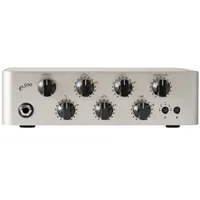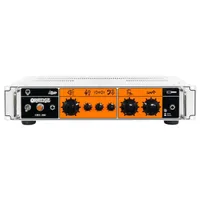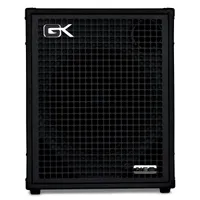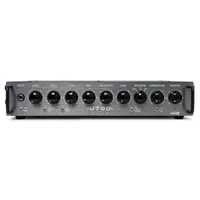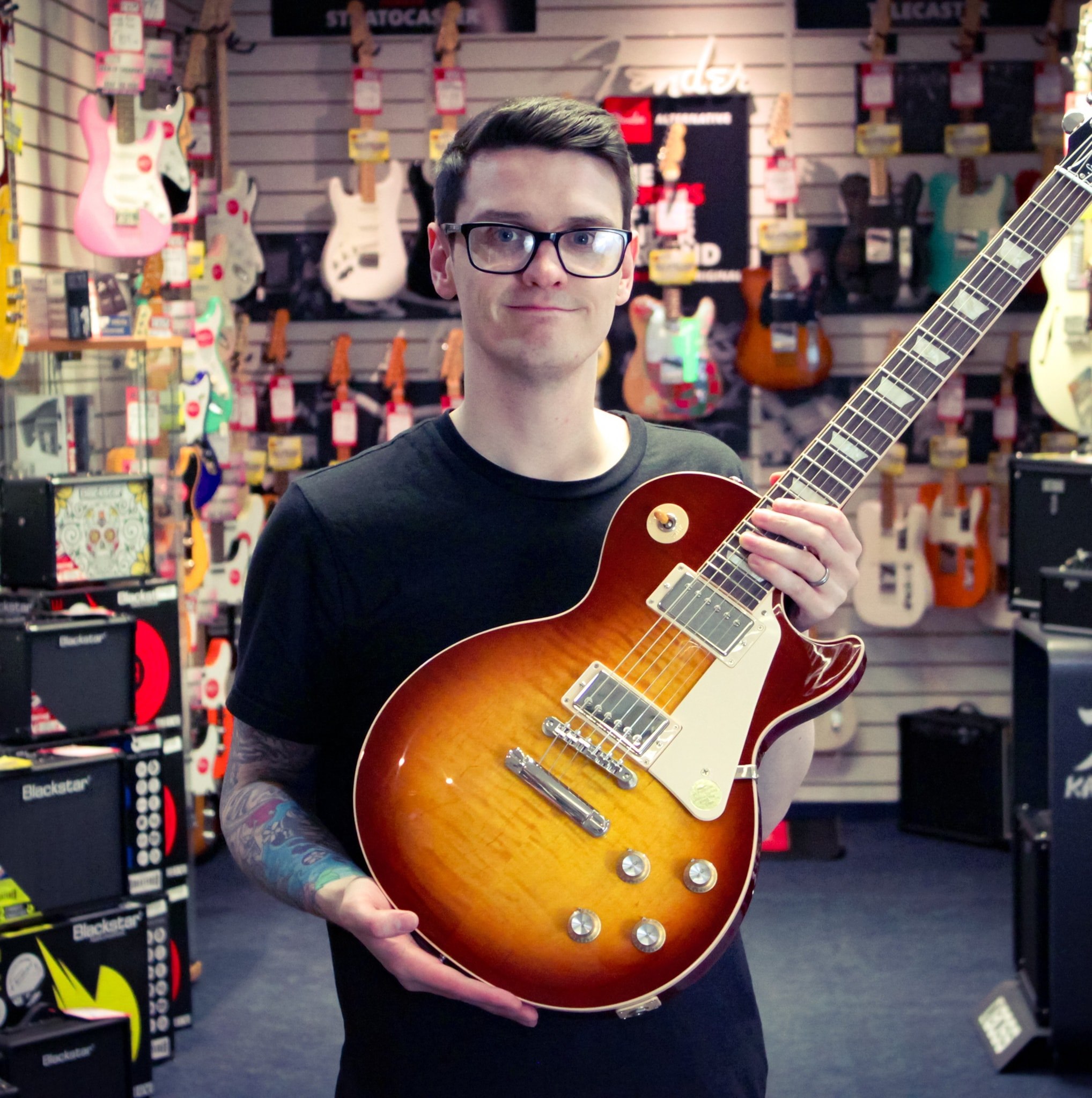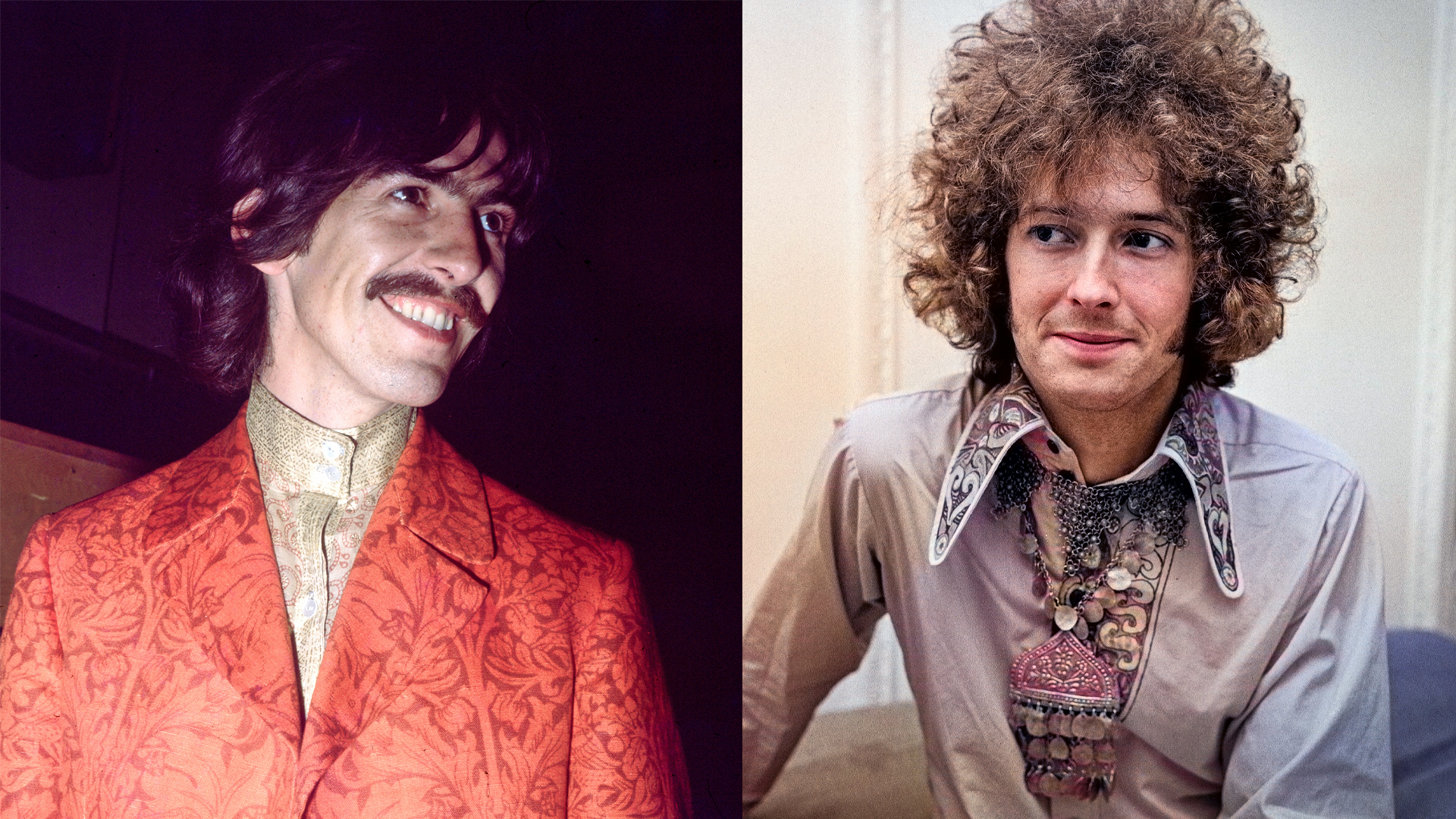Best bass amps: low-end tone machines
Our pick of the best bass amp combos and heads from the likes of Fender, Blackstar, Orange, Darkglass and more
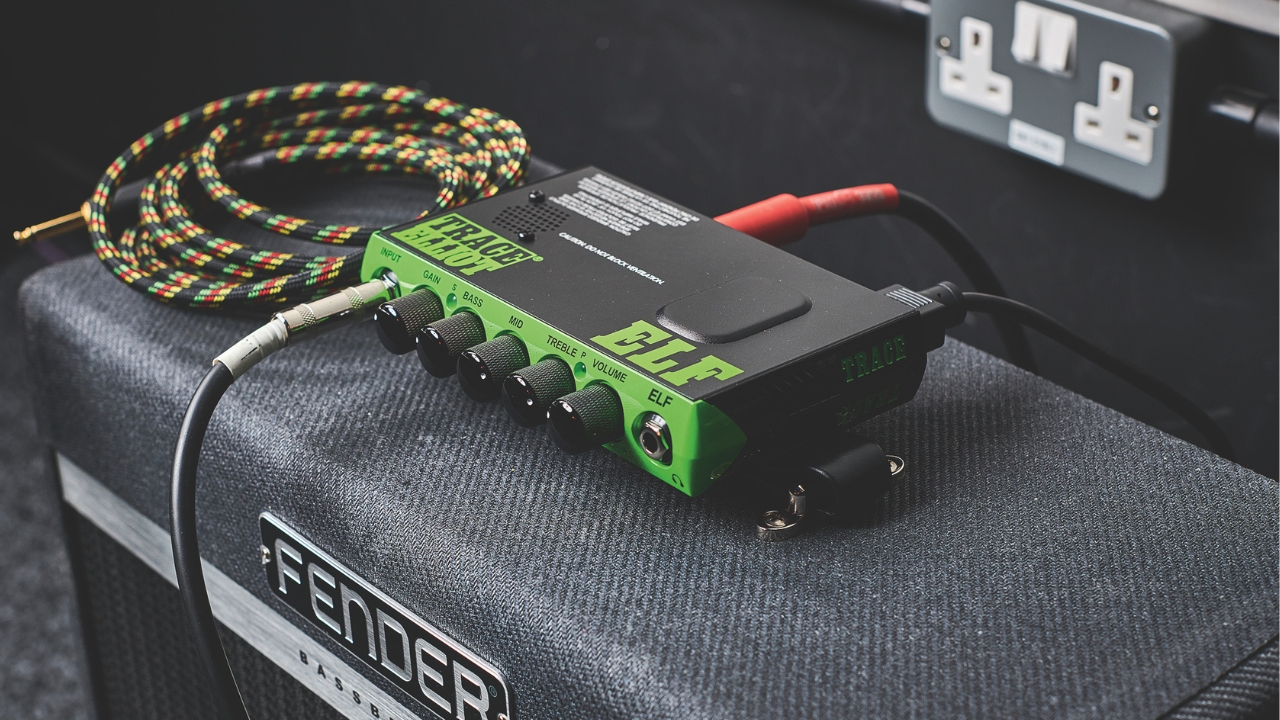
The bass guitar is the backbone of any great band and a bass amp that produces bone shaking low-end, with enough punch to cut through the mix is the perfect platform for a band to create a sonic masterpiece. When you think of the best amps of all time, it’s understandable that guitar amps often come to mind first, but many of the best bass amps are equally iconic, and their modern counterparts are just as exciting.
There is no shortage of bass amps to choose from, coming in all shapes and sizes, from compact heads that can be held in one hand, to all-in-one combos, which pair speakers and amplification into one unit, ready to get the best tones. When used live bass guitar amps are often put through the PA system, so many of these amps come with a direct output that allows you to get the best possible tone for your audience.
To help you narrow down the amplifiers that stand above the rest – and shake below them too – we’ve selected the best options on the market, from vintage-voiced beasts, to feature-packed modern combos that embrace new technology. Read on to find our choices, or scroll down to our FAQs to get answers to the common questions players have when looking to buy a bass amp.
Our top picks
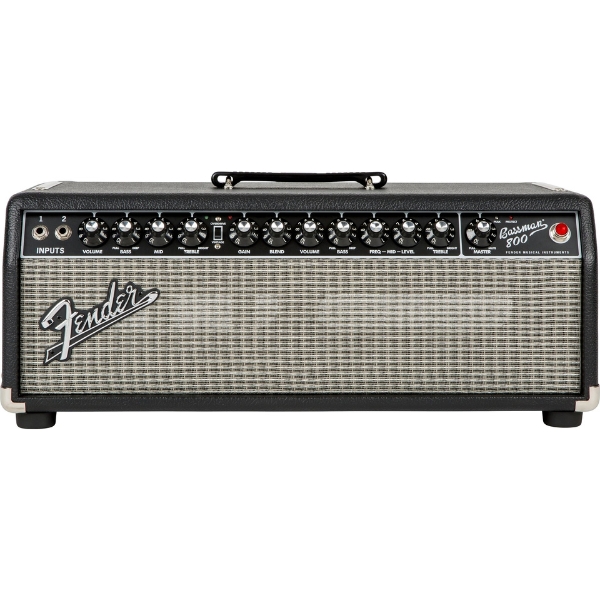
A modern take on one of the classic bass amp names, with two channels providing a huge amount of variation and absolutely bags of volume. There are plenty of superb features that make it perfect for touring musicians.
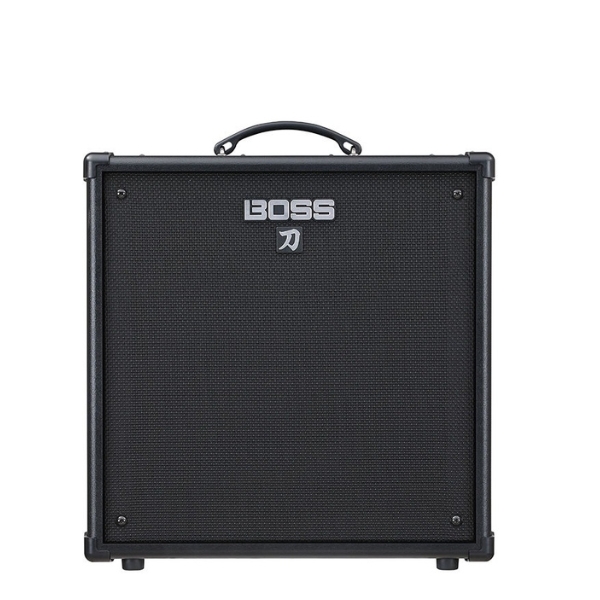
The choice for the contemporary bassist that wants an amp to do it all on a budget. Featuring multiple voicings and four independent effects sections, this is a swiss-army-knife of an amp with 100W of power, switchable down to 1W, making the Katana-110 ideal to use on small stages, the studio, or the bedroom.
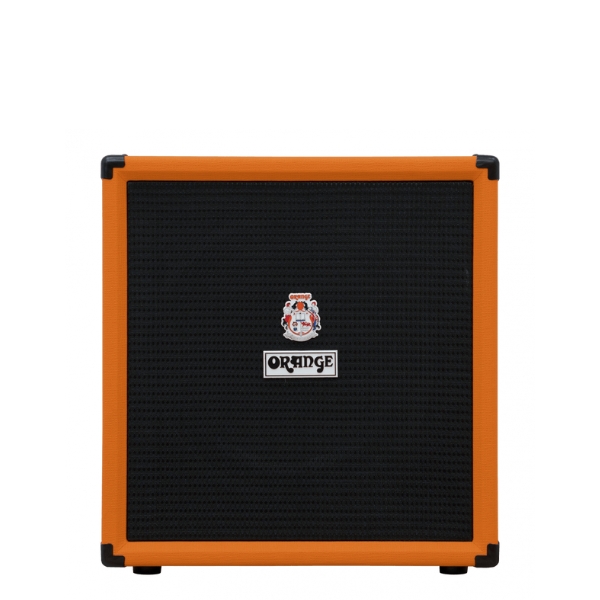
Simplicity encapsulated, the Crush Bass 100 is an all-in-one low-end machine that produces classic analog tones. While it may be simple to operate, that doesn’t mean you’ll be left wanting more, as its tonal range is huge, with the ability to blend the clean and drive channels a particular highlight.
Best overall
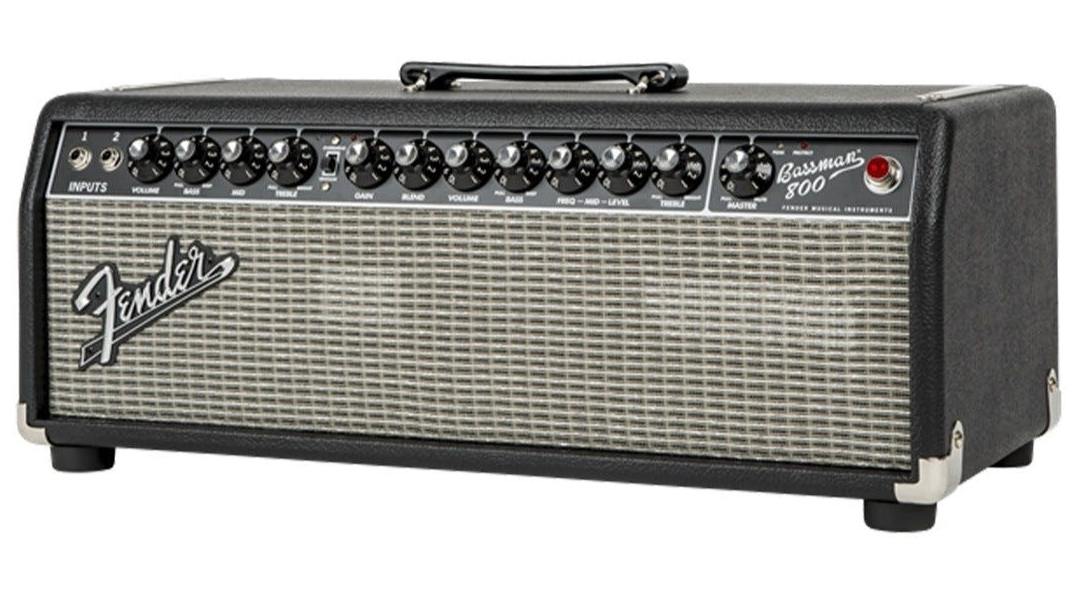
1. Fender Bassman 800
Our expert review:
Specifications
Reasons to buy
Reasons to avoid
The original Fender Bassman from 1952 is a far cry from this contemporary version, but despite all the modern features crammed onboard, the Bassman 800 retains the style, feel and tone of this Fender classic.
Fender uses a hybrid design, combining a tube preamp and solid state power amp to deliver a thunderous 800W of pure Fender clarity and warmth. Better yet, you also get two channels to choose from - vintage and overdrive - making this amp even more flexible.
As this amp is designed for modern players, the Bassman features an XLR line output with a level control knob, ground lift switch, pre/post EQ switch and silent recording capability. If that wasn't enough, it can also be seen behind Green Day bassist Mike Dirnt on some of the biggest stages in the world.
Best budget
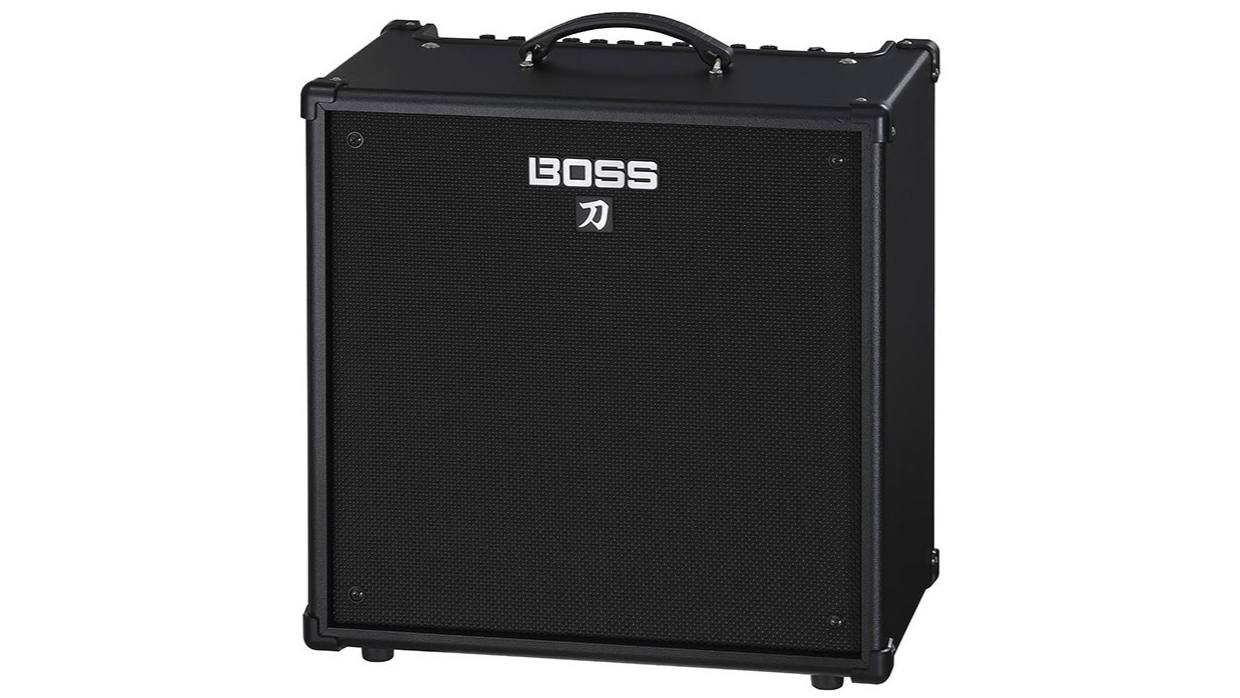
2. Boss Katana-110
Our expert review:
Specifications
Reasons to buy
Reasons to avoid
Boss Katana routinely tops our list of the best guitar amps in the world, so it only makes sense that the bass model would make an appearance here. Following in the guitar version's footsteps, the Katana-110 takes what six-string players loved about that iteration and reimagines it for the modern bassist.
With three unique amp voices – Vintage, Flat and Modern – as well as extremely usable effects, this amp is adaptable, reliable and seriously simple to use. What's more, the 110-watt class AB power amp and custom 10-inch woofer mean it's more than capable of hitting the stage with you.
Now, the Katana-110 shouldn't be dismissed as purely a gigger's amp, as the ability to drop its impressive output to a single watt means it's just as comfortable at home as it is on the stage.
Best combo
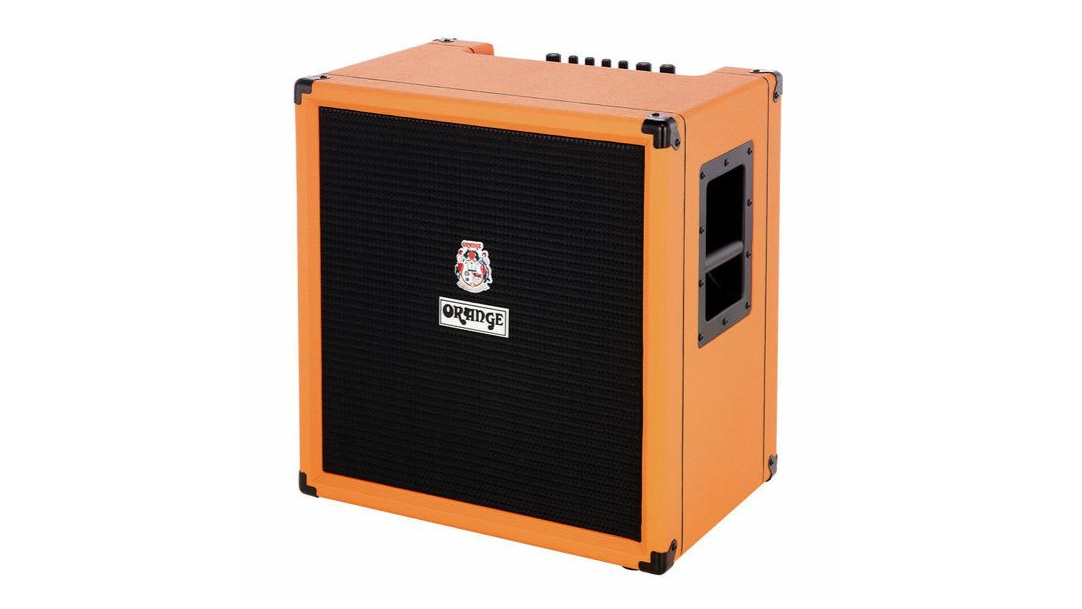
3. Orange Crush Bass 100
Our expert review:
Specifications
Reasons to buy
Reasons to avoid
The Orange Crush line has long been a go-to staple of guitarists looking for an affordable yet reliable solid-state amplifier – and the same is true for bass players. This 100W combo is ideal for smaller shows and practice rooms and even has a few useful features onboard.
The feature that makes the Crush Bass stand out from other bass amps in the category is the Blend and Gain controls. These are taken from the company's OB1 series of guitar amps and allow you to integrate the harmonic distortion Orange is known for with your core bass sound.
Other handy additions include a balanced output for connecting to a PA, an emulated headphone output for practice, an aux input for connecting external audio sources and an onboard tuner.
Best head
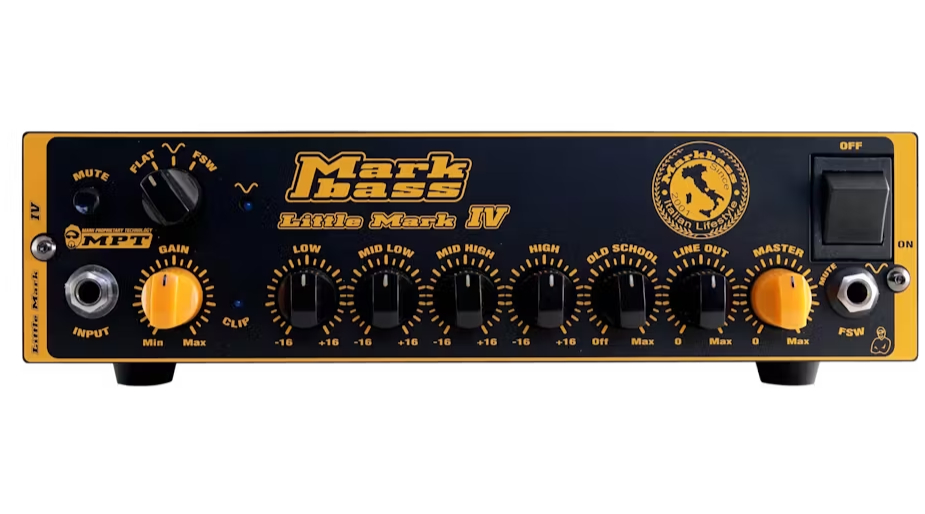
4. Markbass Little Mark IV 500W
Our expert review:
Specifications
Reasons to buy
Reasons to avoid
Don't let the small stature of the aptly named Little Mark fool you. This mighty bass head will fill the biggest rooms with the most insane low-end – and all while fitting snuggly in your gig bag.
The Markbass Little Mark has been a staple of practice rooms and venues for years and the latest version is the best yet. The tone of this pint-sized head is clear, clean and very articulate – and it also gives you the option to switch between a flat or scooped EQ setting.
For us, the Mark Bass Little Mark represents everything we love about high-powered portable bass amps and is a must-try for every style of bass playing.
Best practice
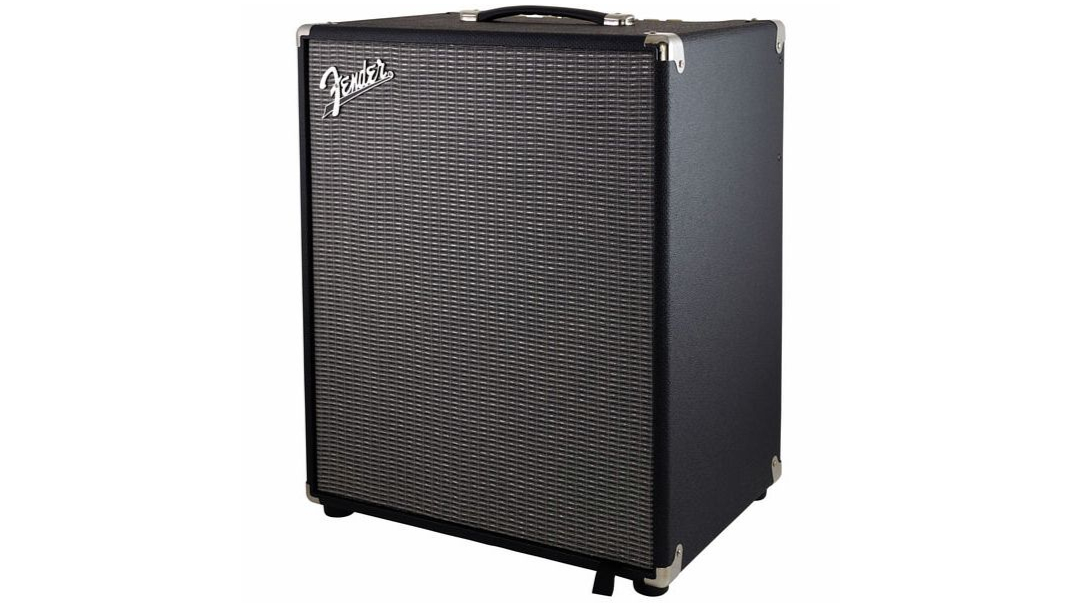
5. Fender Rumble 200
Our expert review:
Specifications
Reasons to buy
Reasons to avoid
This may be the second entry from Fender on this list, but the Rumble 200 takes a very different approach to bass reinforcement than that of the classic Bassman. Now, the Rumble series of amplifiers feature a full complement of models from a 15W practice combo to an 800W bass behemoth – but we've decided to opt for the Rumble 200, as we believe it offers the most bang for your buck.
The 200W of power is more than enough for most situations and the 15" Eminence speaker delivers plenty of low-end punch. What's more, you can even bring in and out the compression horn – via an on/off switch on the rear of the amp – so you can dial in the perfect amount of high frequencies to compliment your roaring bass tone.
Other features include a three-button voicing section, which allows you to choose between Bright, Contour, or Vintage mode, an XLR line out with ground lift and a foot-switchable overdrive channel.
Best compact
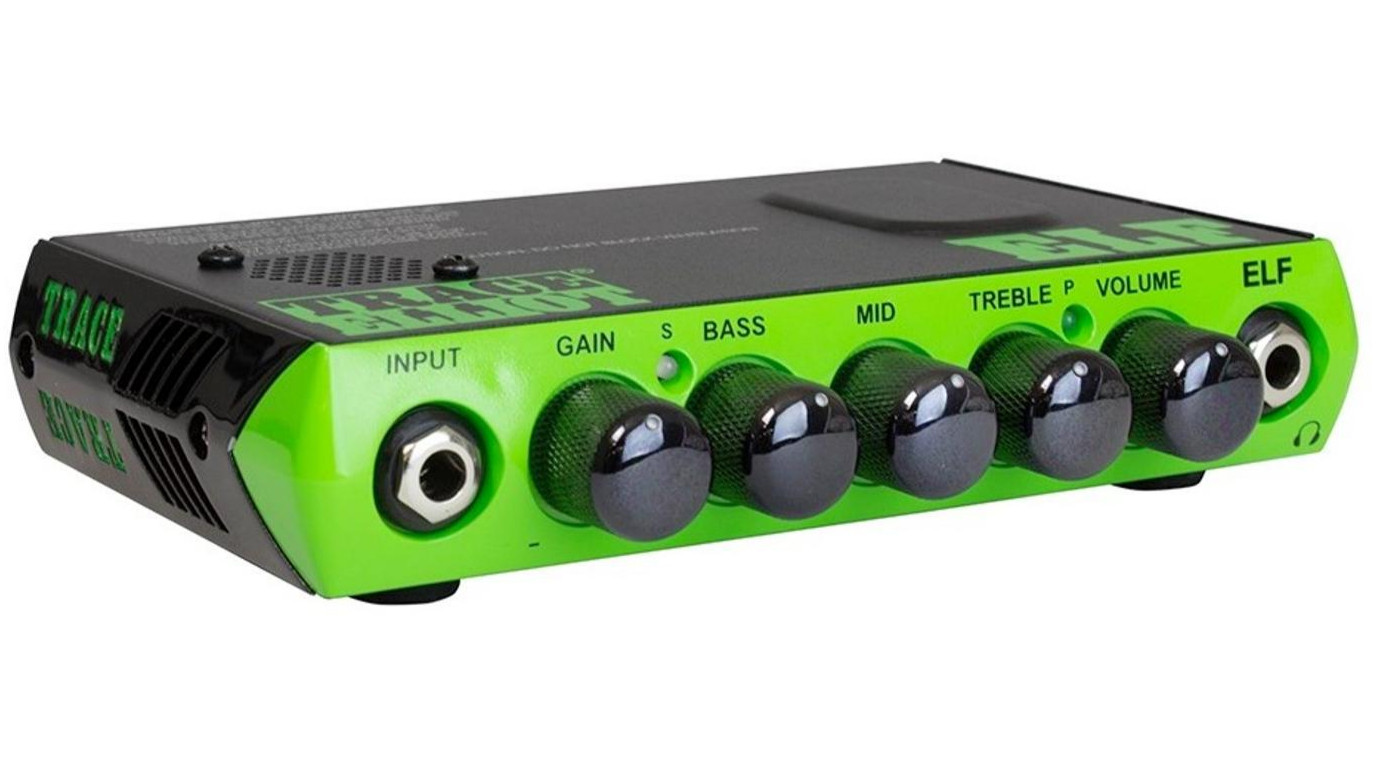
6. Trace Elliot ELF
Our expert review:
Specifications
Reasons to buy
Reasons to avoid
If you thought the Little Mark was small, then wait until you see what Trace Elliot has up their sleeves. The ELF is easily one of the smallest bass amps on the market, clocking in at 4" tall and 12.5" wide.
This emerald bass head is ideal for players on the move as it will comfortably fit inside the pocket of your gig bag while leaving plenty of room for cables and the odd pedal. Now, the ELF may not have as many features as some of the other amps on this list, but it does include everything you need for a stellar bass tone.
The 200-watts of power is more than enough for most situations, while the XLR out is a must-have for sending your perfect bass signal to the PA – and there's even a headphone jack for silent practice.
Also consider
If for some reason you didn't find what you were looking for above, here are some more great options for you to choose from.
Darkglass Exponent 500
500W | Head | 1.65kg
At the heart of the Exponent is a 500W amplifier that's clean and fiercely assertive. Of course, with this being a contemporary unit, you also gain access to an XLR direct out, a USB audio interface, and MIDI connectivity. Better yet, the Exponent 500 comes preloaded with five adaptable factory presets and with the use of the Darkglass Suite, these can be fully customizable, making the amp even more versatile.
★★★★½
Orange OB1-300
300W | Head | 10.1kg
Star Wars name jokes aside, this is one of the best bass amps out there – particularly for those that like to add in some guitar-esque overdrive alongside their bass signal. It’s based on a bi-amp design, but it’s a lot more than just a Royal Blood soundalike. Ignoring the gain for now, it’s a great sounding amp – powerful, thick, strong low-end (especially when paired with one of their bass cabs), with lots of top-end clarity. A three-band EQ keeps things simple and effective for tweaking your tone.
★★★★½
Gallien-Krueger Legacy 115
800W | Combo | 17.7kg
The Legacy 115 showcases why many players opt for a solid-state bass amp. This combo delivers a blistering 800 watts of pure, clean tone with a staggering amount of headroom. Better yet, the onboard overdrive tones and compliment of tone-shaping options mean this amp is perfectly versatile and up for anything you throw at it.
★★★★☆
Blackstar Unity 700H Elite
700W | Head | 4.2kg
In a slick, compact, rack-mountable 700W head, this versatile offering from Blackstar covers a whole range of bass tones very well, whilst remaining incredibly user-friendly. On the front panel, you’ve got a three-way switch that alters the voicing of the amp. Choose from Classic and Modern settings if you know which way you lean, or go for the Flat setting if you want a clean slate. You’ve then got dedicated controls for a selectable gain – you can either have overdrive, distortion, or fuzz, so simply select which one you’d like, and dial it in.
★★★★☆
How to choose
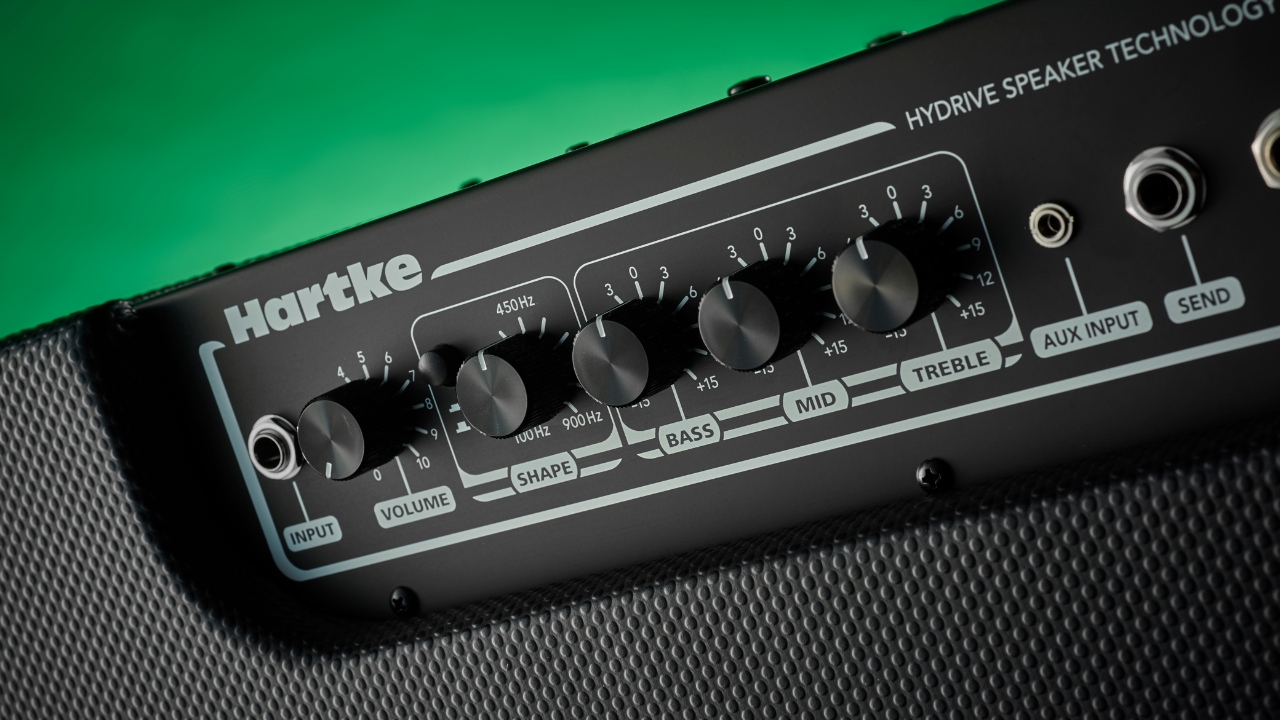
When it comes to finding the best bass amp for your needs, it really comes down to application. The right bass amp for a touring rock band will be worlds apart from the right bass amp for the average bedroom warrior. So think carefully about what you really want your new bass amp to do, and use that as a starting point.
You'll want to consider things such as power, the versatility of sounds, connectivity and, of course, if you are gigging, portability. This guide has most situations covered, so you should find an amp here to suit your needs.
1. Head or combo?
You can trust Guitar Player.
If you need to keep your rig as small as possible, there are plenty of almost-pocket-sized bass amp heads. If you are sharing a bill with multiple bands, then you may be able to borrow a bass cabinet, and if not, there are a number of fantastic, compact cabs that would pair perfectly. A head also means you can pair different cabs with your amplifier depending on the situation, for example a laid back bar gig may be perfect for a compact 1x10” cab, but if you have a festival slot lined up for the following day, you can crack out the 8x10”.
If you want to avoid the risk of not having access to a speaker cabinet, a bass amp combo might be better for you. These are amplifiers with speakers that have been paired to work with the amplifier section sympathetically, so you should have a great sound. They can be a little heavy, especially larger models. So it might be easier to have a cabinet and amp head separately. If you’re concerned that a bass combo might not shift enough air, many combos will have an additional speaker output, so you can add another cabinet.
2. Power
Bass amps can be particularly confusing when it comes to wattage and you may need more than you think to compete with the rest of a band. If you are looking to play live regularly, consider an amp with plenty of watts and a DI output (most good bass amps will have this anyway) which gives the sound engineer the chance to plug you into the PA and give you far more volume.
100 watts for a guitar amp would be very loud, whereas this might not be enough for a bass amplifier – though there are outliers. To be sure that you can have an amp to handle anything up to medium-sized shows, we would suggest looking for an amplifier with 200W of power as a minimum, and 300W+ is ideal.
3. Additional features
Any bass amp should have some tonal shaping ability through an onboard EQ. The complexity of EQs can vary drastically across different amplifiers, with the ability to shift different bands to alter more specific parts of the tone, but even basic EQs should have been voiced to tastefully attenuate frequencies to produce the tone you need.
Dynamic processing such as compression is a fairly common addition to a bass amplifier and is very useful for adding a ‘pop’ to your tone that works particularly well for funk playing. Other effects are less common, but can be really useful, depending on which genre you play.
If you want to record at home, some bass amps feature recording interfaces, which make it easy to plug into a computer and achieve ready-made bass tones, which is arguably the simplest way to record bass. If you already have a recording set up, we would recommend an amplifier with an integrated DI output. Not only is this really helpful for playing live and giving the sound engineer a balanced version of your bass tone, it is also handy for recording, allowing you to plug straight from your DI output into your recording interface for a line level tone.
For beginners, bass combos that offer an all-in-one solution are our recommended starting point, and why not also look for an amp with a tuner? That way you should have everything you need to make great tones and, crucially, be in tune while you do it!
FAQs
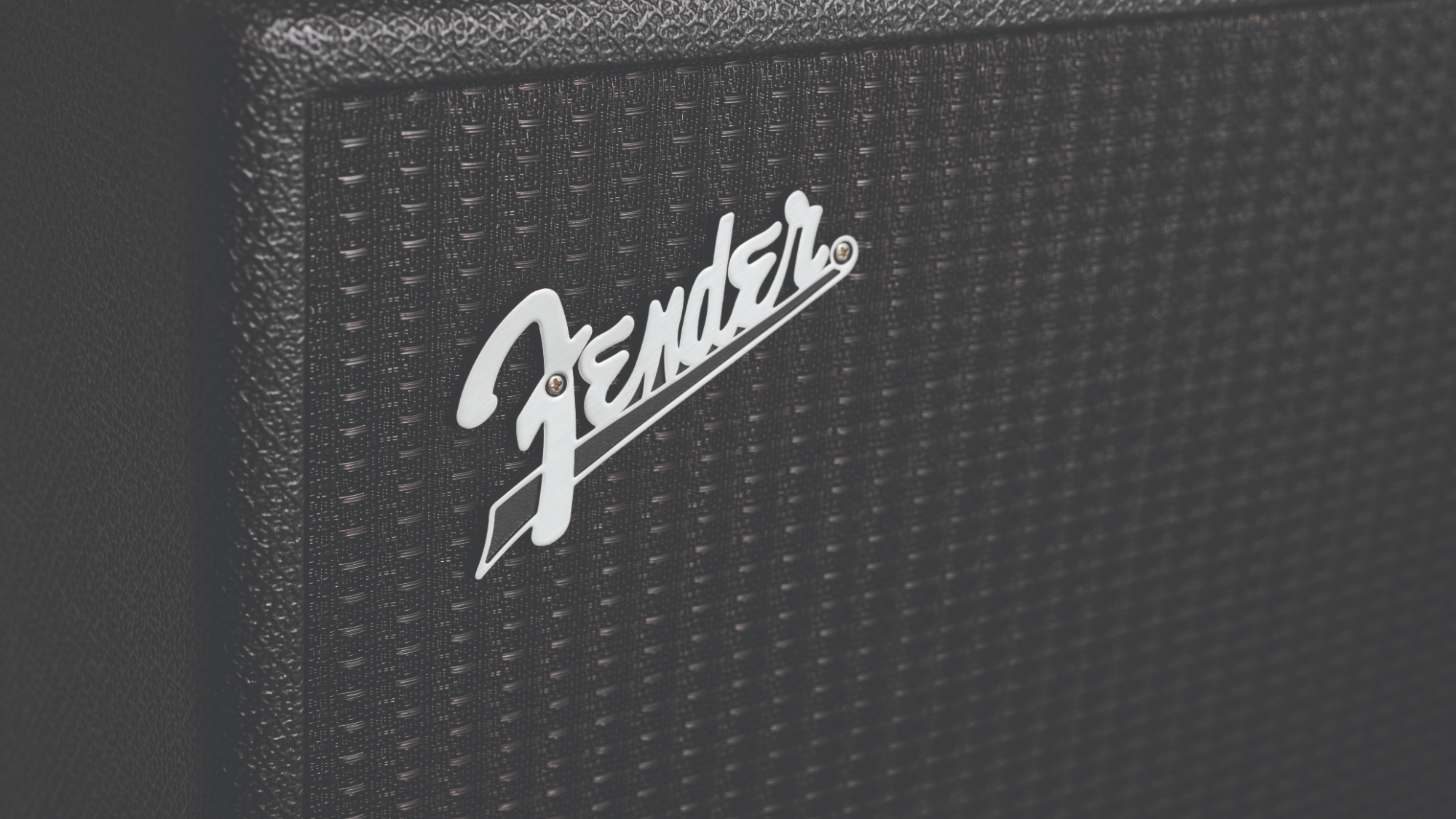
Who makes the best bass amps?
There are countless bass amp manufacturers and so many of them make brilliant products, however some have a storied history of producing some legendary bass amps, such as Fender, Gallien-Krueger, Ampeg, and Orange. While these amps set the benchmark, modern protagonists such as Markbass and Darkglass offer a different bass amp experience that is equally exciting in their own way and appeals to a distinct set of bassists.
Is a 100-watt bass amp enough?
If you're only playing at home then a 100-watt bass amp would cover your needs. If you want to play with a band in rehearsal or start gigging you'll probably need a lot more power, so opt for something with at least 300 watts, ideally more.
What size speakers are best for bass guitar?
Generally speaking the larger a speaker, the more low-end it has, so in theory a 15-inch speaker would be best for bass guitar. That said, this isn't always the case, and many bassists will prefer a 10 or 12-inch speaker for their amps. At the end of the day it comes down to personal taste, so you should try some different options and see which you prefer.
Will a bass ruin a guitar amp?
We'd always advise never to play a bass through a guitar amp. A bass guitar emits much more low end than most guitar amps are capable of handling, so you could potentially destroy a guitar amp by putting a bass guitar through it.
How we test
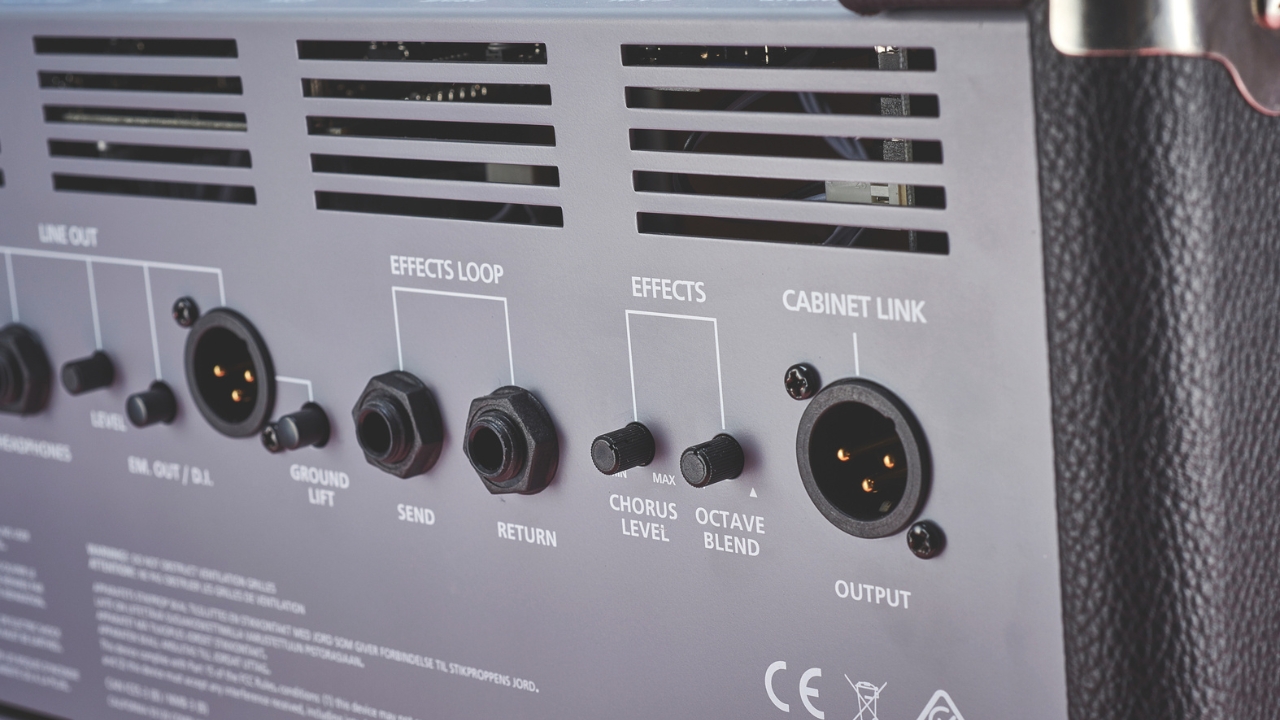
At Guitar Player, we live and breathe everything guitar related. It's our passion and we certainly hope this passion comes through in our buyer's guides. Everyone at Guitar Player is an expert in their field and we draw on this knowledge and experience when selecting the products for our guides.
When choosing what we believe to be the best bass amps available right now, we combine our hands-on experience, user reviews and testimonies and engage in lengthy discussions with our editorial colleagues to reach a consensus about the top products in any given category.
When making our lists, we pay careful consideration to everything from budget to feature set, playability and durability to come up with an accurate representation of the best bass amps available right now.
Read more on how we test gear and services at Guitar Player.
Related buyer's guides
- On a budget? Here's our list of the best bass guitars under $500
- Save cash on the best electric guitars under $500
- Plug in with one of the best guitar cables
- Go hands-free with the best wireless guitar systems
All the latest guitar news, interviews, lessons, reviews, deals and more, direct to your inbox!
First and foremost, I'm a guitar enthusiast – a fanatic, some might say. I'm a firm believer that most of the world's problems can be solved with a Gibson SG and a catastrophically loud amp. Before writing about guitars for a living as a Senior Deals Writer on Guitar Player, I worked in music retail for 7 years, giving advice on guitars, basses, drums, pianos, and PA systems. I also have a passion for live sound; I'm a fully qualified sound engineer with experience working in various venues in Scotland.
- Richard Blenkinsop
- Matt McCrackenJunior Deals Writer
- Connor Godfrey
